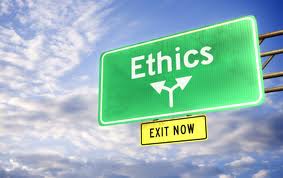 There’s ongoing discussion on code of ethics & deriving purpose in marketplace, to tackle unethical instances of behavior by businessmen, resulting into huge losses for entire industry. The discussion is quite appropriate in the present context of Indian telecom industry.
There’s ongoing discussion on code of ethics & deriving purpose in marketplace, to tackle unethical instances of behavior by businessmen, resulting into huge losses for entire industry. The discussion is quite appropriate in the present context of Indian telecom industry.
And here we are at crossroads. Some might call it decline or maturity stage of telecom market, I would prefer to limit myself to discuss the role of honesty in doing business.
Just a decade back, when we started off the ground, many of us had hardly foreseen the exponential growth of Indian Telecom Industry. The regulators had their own limitations & dormancy to act on loopholes. The policy was set to make Indian telecom industry a perfect competitive marketplace, at least theoretically. Entry barrier was low. Prospects were high. The dream journey started.
Let me ask you one simple question. Has anyone really gained from doing business dishonestly? That’s debatable. In economics, when it comes to dealing with dishonesty in doing business, we always tend to impose huge penalty to stop such things. We pay enormous packages to CEOs & CFOs. We throw perks at CXOs. What we generally do is that impose an indirect penalty to stop them from dealing dishonestly while doing business. Has Indian telecom Inc tossed this theory into dustbin?
Not actually. When we are debating about lack of vision or little transparency in conducting business, blame it on business houses. Values or mission statements are hung on wall only to ignore or recite when called upon. But lack of honesty has more to do than just values or mission or vision.
Few loopholes in telecom policy were cleverly exploited by businessmen only to earn short term profit. Were they committed to the industry in long run? When buyers & sellers exchange product or services for sake of something valuable to each other, they are abided by guarantee contract, which needs to be delivered. Had this simple logic been neglected or purposefully ignored while selling of scarce natural resources to dishonest firms by regulators? When natural resources were sold to firm with dishonest motives, we never expected any guarantee from them. The trust was breached.
What a real estate firm or petroleum firm or consumer product giant has to do with native telecom? This could only be answered in short run and not in long run. Telecom was quick route to cash for them. These business houses had forsaken everything for sake of short run profits, including their own image & name. Can dishonesty last long?
Imagine you are an honest firm with dishonest aims of earning some quick cash. You enter into market knowing fully the loopholes in the rules of game. You neither commit anything to industry nor seeking any value addition. You trade in some resources & then trade out them with huge profit. You gained at cost of nothing?
When firms deal dishonestly, they often tend to ignore that they have kept their brand name & image (which takes years to build) hostages in consumer’s hand. While it might be possible to earn some short run profit doing business dishonestly, the penalty of such misconduct would be huge once discovered, overshadowing the profits earned. Then why few people or firm tend to keep everything hostage for nothing? That’s what I call as ‘Irresponsibly Irrational behavior of Few’ .
Economists call it a moral hazard problem. This could lead to a prisoner’s dilemma problem too, where buyer & seller can gain huge payoff by doing business ethically & honestly with each other. But the firm with dishonest purpose, who is here for some quick cash, doesn’t see it in that way. But buyers or end consumers or even few honest policymakers don’t see the motive of the firm. They trust them. Had both buyer & seller made honest commitment to business, the payoff would have been huge for both. But despite all this, where seller had dishonest purpose, buyers end up losing heavily, resulting into little payoffs for seller. Who has gained then?
Indian telecom industry is full of people with moral hazard issues. These powerful but dishonest CXOs & lobbied externalities don’t deliver on promises after contracts are signed. They tend to exploit rules for sake of their own purposes. And said all this, there’s something more lacking- the ‘Purpose’. Had we started journey with some purpose, we mightn’t face such issues. These firms or even people have kept their own names hostages to customers for sake of something fleeting. What will be the penalty? It would be huge once trust is breached. Irreparable!
Developing the real purpose for the firm would be the best alternative. Permeating such purpose down to bottom rung is need of time. Ethics can’t be discussed in classes. It needs courage to deliver when demanded. We often have shown courage to behave dishonestly. Who has gained? In fact, as mentioned above, we all are standing at risk of payoff losses. Had we dealt in business honestly, we, the entire industry would be in better position. The cost associated with dishonesty of few is huge. We need courage to stick to what was promised. Dear CXOs, show some courage to deliver on ethics, develop right purposes & always remember no one really gain in dealing dishonestly in business- at least in long run.You might have forgotten this.





